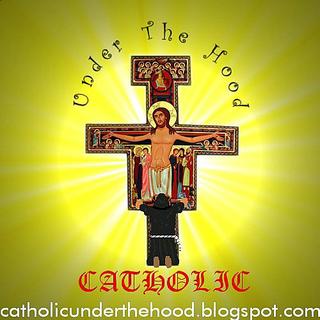Reflections on Evolution, Creation and Catholicism - Part III
The Catholic understanding of original sin as biologically transmitted and arising through a historical event should be protected in an understanding of evolution. As the Catechism asserts “Revelation gives us the certainty of faith that the whole of human history is marked by the original fault freely committed by our first parents.” As for original sin’s biological transmission, Muller notes, “Original sin is transmitted from generating person to generated person, from complete composite entity to complete composite entity, not, as such, body to body or soul to soul…This transmission happens because persons are essentially, substantially in relation, and if the relation is poisoned because one of the terms of the relation, the progenitor, is corrupted by sin, the other term, the child, cannot but be affected.” [CCC 390, Muller 514]
Therefore, Catholic teaching on original sin has three implications for the Theory of Evolution. First, this means that original sin is not to be seen as simply part of the natural process of evolution or reflective of a “survival of the fittest”. Original sin resulted from a deliberate human choice, not from cosmological or evolutionary structures. To assert that original sin simply refers to the existence of chaos and uncertainty in the universe or in the evolutionary process would be to deny the inherent goodness at the root of all Creation according to Catholic belief.
Secondly, original sin is the result of a deliberate moral choice – the act of specific individual or individuals, not a generic term applied to a generalized group or to social sin. “Adam” cannot be seen as simply a metaphor for the earliest human community. Therefore, Catholic teaching has supported a monogenetic origin of humanity. As the Catechism states, “Because of its common origin the human race forms a unity, for ‘from one ancestor [God] made all nations to inhabit the whole world’.” Traditionally this first ancestor is associated with the figure of Adam in Genesis, but the historicity of Adam is not definitively taught by the Catholic magisterium.
The Catholic magisterium has generally not accepted a polygenetic origin of humanity, that is, that many human beings appeared at the same time, perhaps in different parts of the globe. [Muller 506, CCC 360]
In his encyclical letter Humani Generis, Pius XII asserts that: "For the faithful cannot embrace that opinion which maintains that either after Adam there existed on this earth true men who did not take their origin through natural generation from him as from the first parent of all, or that Adam represents a certain number of first parents. Now it is in no way apparent how such an opinion can be reconciled with that which the sources of revealed truth and the documents of the Teaching Authority of the Church propose with regard to original sin, which proceeds from a sin actually committed by an individual Adam and which, through generation is passed on to all and is in everyone as his own." [Humani Generis 36]
Tomorrow, I'll deal with responses to Humani Generis.
Therefore, Catholic teaching on original sin has three implications for the Theory of Evolution. First, this means that original sin is not to be seen as simply part of the natural process of evolution or reflective of a “survival of the fittest”. Original sin resulted from a deliberate human choice, not from cosmological or evolutionary structures. To assert that original sin simply refers to the existence of chaos and uncertainty in the universe or in the evolutionary process would be to deny the inherent goodness at the root of all Creation according to Catholic belief.
Secondly, original sin is the result of a deliberate moral choice – the act of specific individual or individuals, not a generic term applied to a generalized group or to social sin. “Adam” cannot be seen as simply a metaphor for the earliest human community. Therefore, Catholic teaching has supported a monogenetic origin of humanity. As the Catechism states, “Because of its common origin the human race forms a unity, for ‘from one ancestor [God] made all nations to inhabit the whole world’.” Traditionally this first ancestor is associated with the figure of Adam in Genesis, but the historicity of Adam is not definitively taught by the Catholic magisterium.
The Catholic magisterium has generally not accepted a polygenetic origin of humanity, that is, that many human beings appeared at the same time, perhaps in different parts of the globe. [Muller 506, CCC 360]
In his encyclical letter Humani Generis, Pius XII asserts that: "For the faithful cannot embrace that opinion which maintains that either after Adam there existed on this earth true men who did not take their origin through natural generation from him as from the first parent of all, or that Adam represents a certain number of first parents. Now it is in no way apparent how such an opinion can be reconciled with that which the sources of revealed truth and the documents of the Teaching Authority of the Church propose with regard to original sin, which proceeds from a sin actually committed by an individual Adam and which, through generation is passed on to all and is in everyone as his own." [Humani Generis 36]
Tomorrow, I'll deal with responses to Humani Generis.










0 Comments:
Post a Comment
<< Home